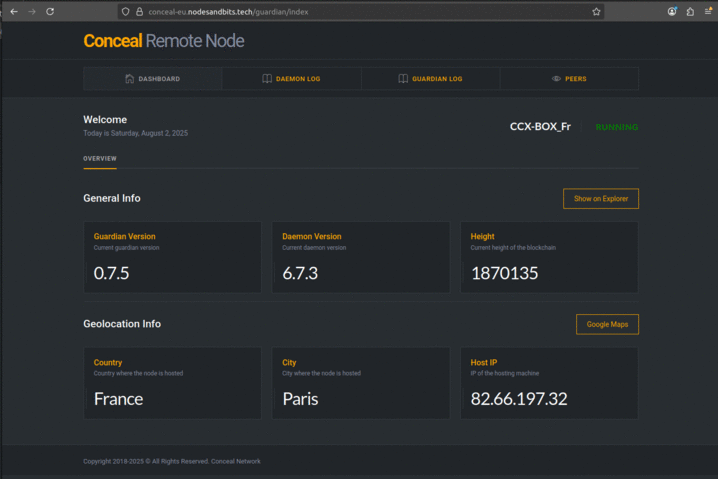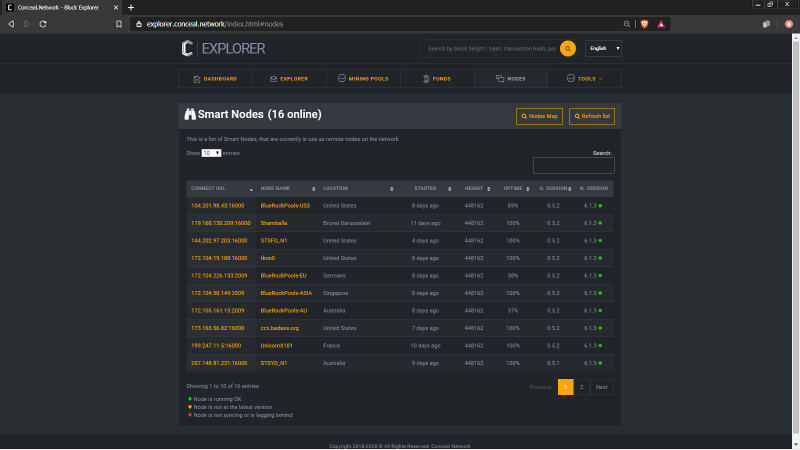Smart-nodes
Table of Contents
Conceal Node Guardian
About
Conceal Node Guard is a guardian process that monitors over the Conceal daemon. It can catch daemon errors and also monitors if the block count is increasing. In case an error is detected or the block count is stale, the Conceal Node Guard restarts the daemon and notifies the devs in Discord over a web hook, or sends an email to the recipient, or both.
The Conceal Node Gaurd can also connect to a pool, so the node is then listed among available nodes for either infrastructure monitoring or a remote node with a listing fee.
Installation
To install and run the Conceal Node Guard you have two options:
- Option 1 is to install and run it via the node.js virtual machine. If you go with the Option 1, then continue reading.
- Option 2 is to download and run the pre-compiled executable that already includes node.js. For Option 2, go to this installation page. Option 2 will not have any dependencies.
For Option 1, you will need to install two dependencies:
You can install Node.js via package manager here.
Once you have installed Node.js and npm you can run the guardian by simply doing:
npm install node index.js
Before you run the guardian, check the config.json and set the correct settings. For an interactive config setup:
node index.js --setup
(please refer to this installation page).
You can see an example config.json file and detailed instructions here.
API
The Conceal Node Guard can have an api that listens for incoming requests and returns some info about the node. The api only has one handler (all other request are considered invalid and return 403):
- getInfo
Click here to see a result example.
HTML
The Conceal Node Guard has a web interface. A feature available is to have the daemon automatically update to the newest version. By default, the auto update of the daemon must be manually enabled in the config.json file or with the interactive setup. NOTE: The auto update feature only applies to the daemon and not the guardian.
Click this Example node to view a live node on the HTML interface. Below is an example of the HTML interface. To view your node via HTML, just copy the following URL to your browser and replace “YOUR.IP.ADDRESS” with your actual IP address: YOUR.IP.ADDRESS:8080/index.html or if your run locally: http://localhost.8080/index.html
A stand alone node pool is available for all remote nodes. Each node registers to the pool and sends periodic updates to allow visibility on the explorer. For a full list of nodes click here.


